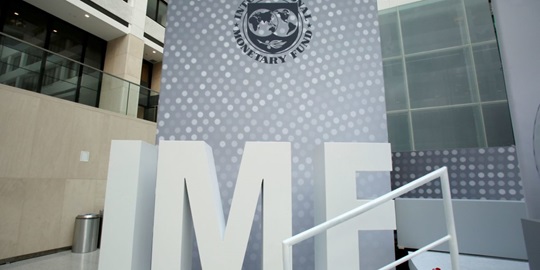Ghana ranks fourth among ten African countries with the most outstanding debt to the International Monetary Fund, with a total liability of 2.275 billion Special Drawing Rights (SDR), equivalent to approximately $3.068 billion.
The country’s exposure to the Fund as of January 31, 2024, stood at SDR 2.088 billion which was equivalent to $2.77 billion.
Per the Fund’s Quarterly Finances for end-January 2024, Ghana’s outstanding concessional loans to the Bretton Wood institution were higher than what was recorded in July 2023.
Ghana received $600 million as a bailout package from the IMF in June 2023 and January 2024 to revive its economy after going through economic challenges.
The report further noted that the country’s concessional loan outstanding to the Fund formed 11% of Africa’s total indebtedness of SDR 18.804 billion.
The SDR is an international reserve asset created by the IMF to supplement the official reserves of its member countries. Its value is based on a basket of world currencies (US dollar, Euro, Chinese Yuan, Japanese Yen and British Pound).
Per the IMF’s Q3 2024 Financial Statement, Egypt leads the continent with a significant indebtedness of SDR 10.050 billion, followed by Angola and Kenya at SDR 2.989 billion and SDR 2.566 billion, respectively.
Notably, Nigeria and Morocco have fallen out of the top ten, making way for Cameroon and Ethiopia.
| Rank | Country | Total IMF Credit Outstanding as of 09/27/2024 |
|---|---|---|
| 1. | Egypt | 10,050,183,347 |
| 2. | Angola | 2,989,900,003 |
| 3. | Kenya | 2,566,263,300 |
| 4. | Ghana | 2,275,210,000 |
| 5. | Ivory Coast | 2,246,318,672 |
| 6. | Democratic Republic of Congo | 1,599,000,000 |
| 7. | South Africa | 1,525,600,000 |
| 8. | Senegal | 1,132,561,250 |
| 9. | Cameroon | 1,130,220,000 |
| 10. | Ethiopia | 1,095,845,000 |
Ghana’s prominent position in the ranking raises serious concerns regarding the nation’s debt management practices and broader economic stability.
While IMF loans are designed to provide temporary relief to member countries, they often exacerbate existing debt burdens, necessitating prudent fiscal oversight.
These loans typically come with conditions that limit government financial flexibility, adding another layer of complexity to Ghana’s economic landscape.
As the country grapples with its rising debt levels, the implications of its reliance on IMF borrowing will be closely scrutinized in the context of sustainable growth and fiscal responsibility.
Currently, the country is undergoing a $3bn programme by the IMF.
Norvanreports





